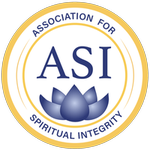Ethical Guidelines
As leaders and representatives of an organization aligned with spiritual values, we at IMHU commit to:
- Holding ourselves, our colleagues, and our staff to the highest standards of ethics, right behavior, and professional competency, as commonly recognized by our peers.
- Performing our organizational and public-facing roles in a caring and compassionate manner in both one-on-one and group interactions.
- Respecting the rights, dignity, and safety of all who belong to our organization and those whom we serve.
- Fostering autonomy, empowerment, self-sufficiency, and emotional maturity within our organization and in our dealings with others.
- Treating questions, concerns, doubts, and experiences raised within our organization and from those we serve, with respect, and never trivializing or dismissing enquiries.
- Being self-aware, open, and humble about the limitations of our knowledge and experience.
- Making only honest, realistic statements regarding the benefits of our organization’s offerings.
- Refraining from giving counsel in matters outside of our areas of training and expertise, and making appropriate referrals as needed.
- Being as honest and transparent as possible regarding our organization’s business and financial matters.
- Honoring the sanctity of privacy and maintaining the confidentiality of information conveyed to our organization and its representatives in confidence.
- Abiding by local laws with respect to the disclosure of information in cases of sexual abuse, child endangerment, and the intention to harm oneself or others.
- Using proper care and caution with techniques that can potentially cause harmful side effects.
- Acknowledging that, regardless of our spiritual attainment, we and our representatives are human beings with human personalities, limitations, drives, and needs.
- Not seeking or presuming exalted privileges or glorified status because of our role in the organization.
- Never manipulating, exploiting, or deceiving another member of the organization or those we serve to satisfy our personal aspirations, needs, or desires.
- Establishing and maintaining clear and wholesome professional boundaries within the organization and with those we serve.
- Never abusing the trust of members of the organization or those we serve to obtain sexual gratification, money, free labor, or other personal benefits.
- Being particularly mindful of sexual boundaries within the organization and with those we serve—and honoring them at all times.
- Cultivating and practicing honesty, integrity, compassion, humility, and empathy.
- Engaging in continuous self-reflection, learning, and holistic personal growth.
- Regularly reviewing our motivations and monitoring the integrity of our words and actions both within the organization and with those we serve.
- Encouraging feedback about our own methods and behavior—and taking that feedback seriously. This includes complaints submitted to the ASI.
- Addressing promptly any personal issues, concerns, or challenges that might affect our professional competency or our organization’s mission.
The above guidelines were first articulated by the Association for Spiritual Integrity (ASI), spiritual-integrity.org. IMHU acknowledges with gratitude their work to clarify and encourage spiritual integrity and, as a member of ASI in good standing, we embrace these same ethical guidelines. The above copy was downloaded on April 28, 2022.

In addition:
24. IMHU trains and certifies Spiritual Emergence Coaches® to recognize and support those in Spiritual Emergency so they can reach the positive transformation that is possible with appropriate support. We understand that there are many catalysts for Spiritual Emergence and Emergency, e.g. the intention to expand consciousness, stress, grief, spiritual practices, intensive workshops, long retreats, psychedelics and plant medicines. Although we see immense positive potential in psychedelic-assisted psychotherapy when it is legalized and performed in an ethical manner in which guides are appropriately trained, we do not advocate or encourage illegal behaviors by Spiritual Emergence Coaches®. In this case, “illegal behaviors” explicitly refers to when any are serving as a guide, sitter, or ceremonialist and that activity is not yet fully legal under the federal laws of the country where the individual is working.
In sum, IMHU recognizes that psychedelics and plant medicines can be very powerful. We know that participants may be empowered and/or may have adverse experiences–even extremely negative states. Thus, use of these medicines can be de-stabilizing. We believe that guides/sitters/ceremonialists need to be well-trained, belong to networks of support that can assist appropriately if a participant becomes profoundly destabilized, and participants need to have a well-trained, disciplined support network for integration of the experience. IMHU recommends MAPS.org for more information on appropriate training and research on potential outcomes of psychedelic-assisted psychotherapy.